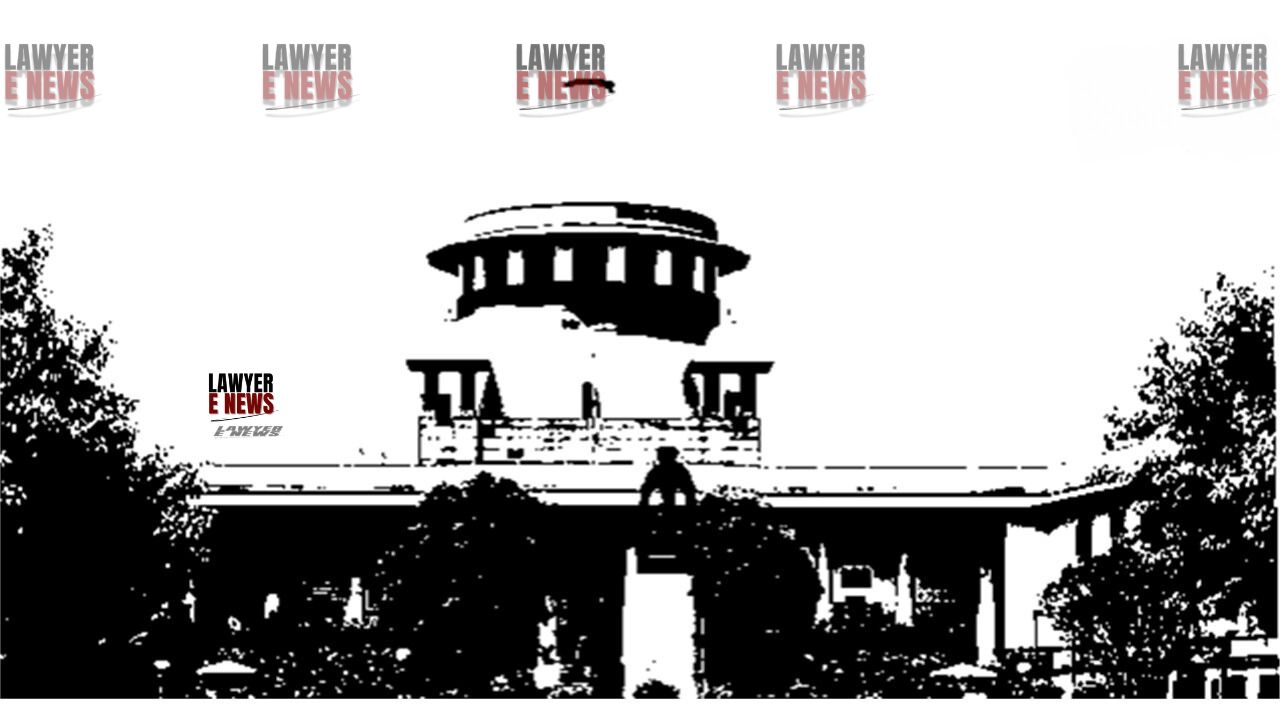-
by Admin
16 February 2026 1:47 PM



Misuse of Authority Alone Is Not an Offense Under the Prevention of Corruption Act Without Proof of Bribe Demand or Acceptance - In a significant judgment Supreme Court quashed corruption charges against former Gujarat Minister Dileepbhai Nanubhai Sanghani, ruling that policy deviations alone do not constitute an offense under the Prevention of Corruption Act unless there is clear proof of demand or acceptance of a bribe. The Court held that "mere non-adherence to government policy does not automatically give rise to a presumption of corruption."
Allowing the criminal appeal filed by the former Minister against the Gujarat High Court’s refusal to quash the case, the Supreme Court ruled that "there is not an iota of material to allege corruption by the appellant. The absence of evidence showing demand or receipt of a bribe negates the applicability of the Prevention of Corruption Act."
"Fishing Contracts Were Granted Without Tender, But No Evidence of Corrupt Motive," Supreme Court Finds
The case originated from allegations that fishing contracts in state reservoirs were illegally allotted without following the required tendering process, allegedly causing a financial loss to the state exchequer. The complainant, a businessman engaged in the fisheries trade, challenged the allocation before the Gujarat High Court in 2008, arguing that the contracts were granted arbitrarily.
The High Court canceled the grants and ordered a fresh tendering process, leading to higher revenues for the state. The complainant later filed a corruption complaint in 2012, alleging that the fishing contracts were awarded in exchange for illegal gratification. Based on this, a Special Court initiated proceedings against seven accused, including Sanghani, under Sections 7, 8, 13(1)(a), 13(1)(d), and 13(2) of the Prevention of Corruption Act, 1988.
Sanghani, who was accused No. 2, filed a discharge application, which was rejected by the Special Court (Anti-Corruption Bureau) and subsequently by the Gujarat High Court. The High Court held that a prima facie case of corruption existed, prompting Sanghani to appeal before the Supreme Court.
"No Demand, No Bribe, No Corruption Case" – Supreme Court Applies Constitution Bench Ruling in Neeraj Dutta
Referring to the recent five-judge Constitution Bench ruling in Neeraj Dutta v. State (NCT of Delhi) (2023) 4 SCC 731, the Supreme Court emphasized that: "Proof of demand and acceptance of illegal gratification by a public servant is a sine qua non for establishing guilt under Sections 7 and 13 of the Prevention of Corruption Act. A mere policy violation, without proof of corrupt intent, is not sufficient."
The Court held that "while the minister may have sanctioned the fishing contracts in violation of policy, there is no direct or circumstantial evidence showing that he demanded or received a bribe. Without such proof, the presumption under Section 20 of the Act does not arise."
"Investigating Agency Found No Bribery Allegation Against Sanghani" – Supreme Court Highlights Key Findings
The Supreme Court scrutinized the investigation report submitted by the Anti-Corruption Bureau, which revealed that:
The entire case revolved around policy deviation and not any personal financial gain to the accused.
There was no statement or material indicating that Sanghani demanded or accepted a bribe.
The original complaint in 2008 made no corruption allegations but only challenged the manner of allocation.
The investigation team never found evidence linking Sanghani to any financial benefit or illegal inducement.
The Court ruled that "a corruption case cannot be sustained based solely on suspicion. The absence of bribery allegations in the investigation report renders the entire prosecution unsustainable."
"Presumption Under Section 20 of the Prevention of Corruption Act Cannot Be Applied in a Vacuum"
Rejecting the prosecution’s reliance on Section 20 of the Prevention of Corruption Act, which allows for a presumption of corrupt intent upon proof of demand or receipt of bribe, the Supreme Court clarified that: "The presumption under Section 20 arises only when foundational facts – such as demand or acceptance of a bribe – are established. Here, no such facts exist. The prosecution cannot assume corruption merely because government policy was violated."
Final Judgment: Charges Quashed, Proceedings Against Sanghani Dropped
Allowing the appeal, the Supreme Court ruled: "The entire case against the appellant is based on a mere policy deviation, with no evidence of bribery or corrupt intent. The prosecution fails to establish the essential ingredients of offenses under the Prevention of Corruption Act. Consequently, the proceedings against the appellant are quashed."
The Court clarified that the trial against the first accused (Minister of State) may continue if there is independent evidence against him.
The Supreme Court’s ruling reaffirms that "corruption charges cannot be based on mere irregularities or policy violations. There must be clear proof of illegal gratification, failing which an accused cannot be prosecuted under the Prevention of Corruption Act."
By quashing the case against Dileepbhai Nanubhai Sanghani, the Court has set a precedent ensuring that public servants are not subjected to baseless corruption cases merely for administrative decisions that deviate from policy.
Date of decision: 27/02/2025
